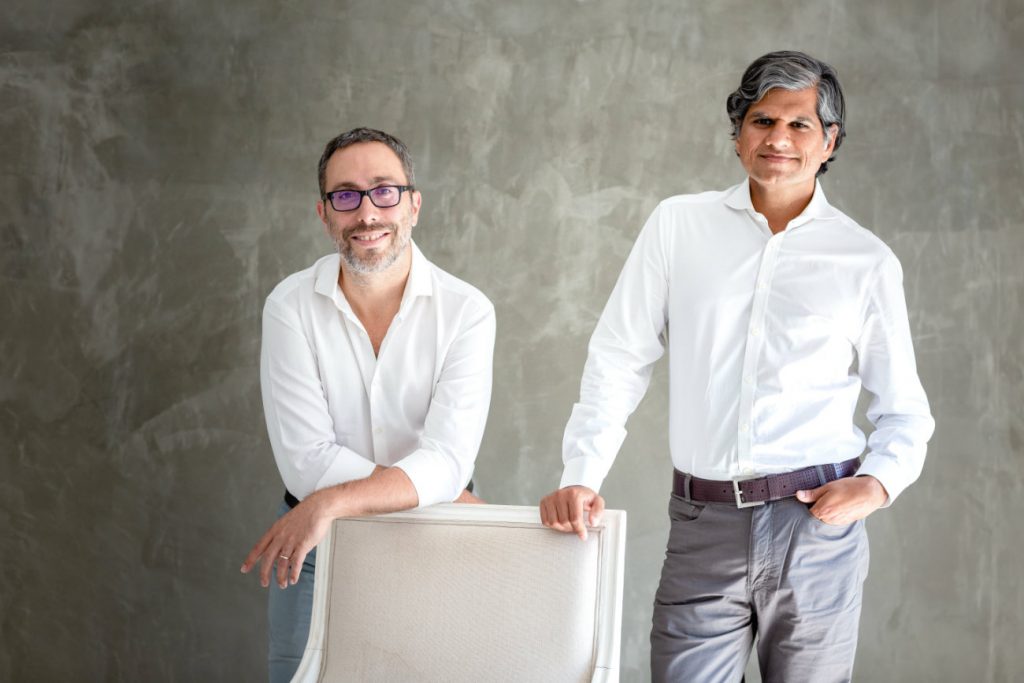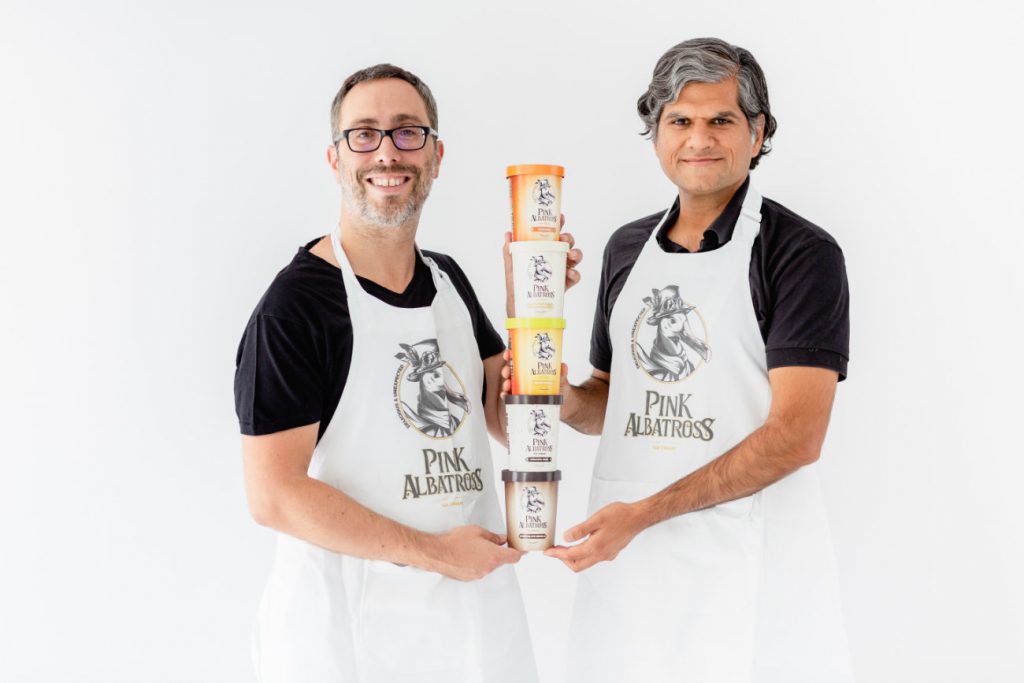Did you know that 75% of the world’s adult population is lactose intolerant? For Pepe Biaggio, allergies became a major topic when his first daughter began suffering from many of them. His challenge was finding quality products that catered to her nutritional needs, and appealed to the whole family, particularly when it came to sweets.
Meanwhile, Luke Saldanha, who has been following a vegan diet for five years, was struggling with a lack of plant-based food options on the Spanish market. When the pair met, they realised that they had two different objectives but that, “the solution was the same”.
In 2018, Luke and Pepe bought an ice-cream machine together and started experimenting, making their own ice-cream at home. The result is Spains’ first clean-label, plant-based ice-cream company: Pink Albatross.




